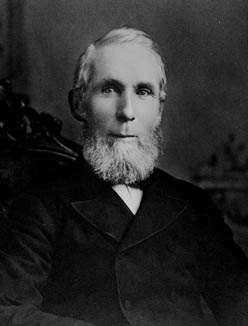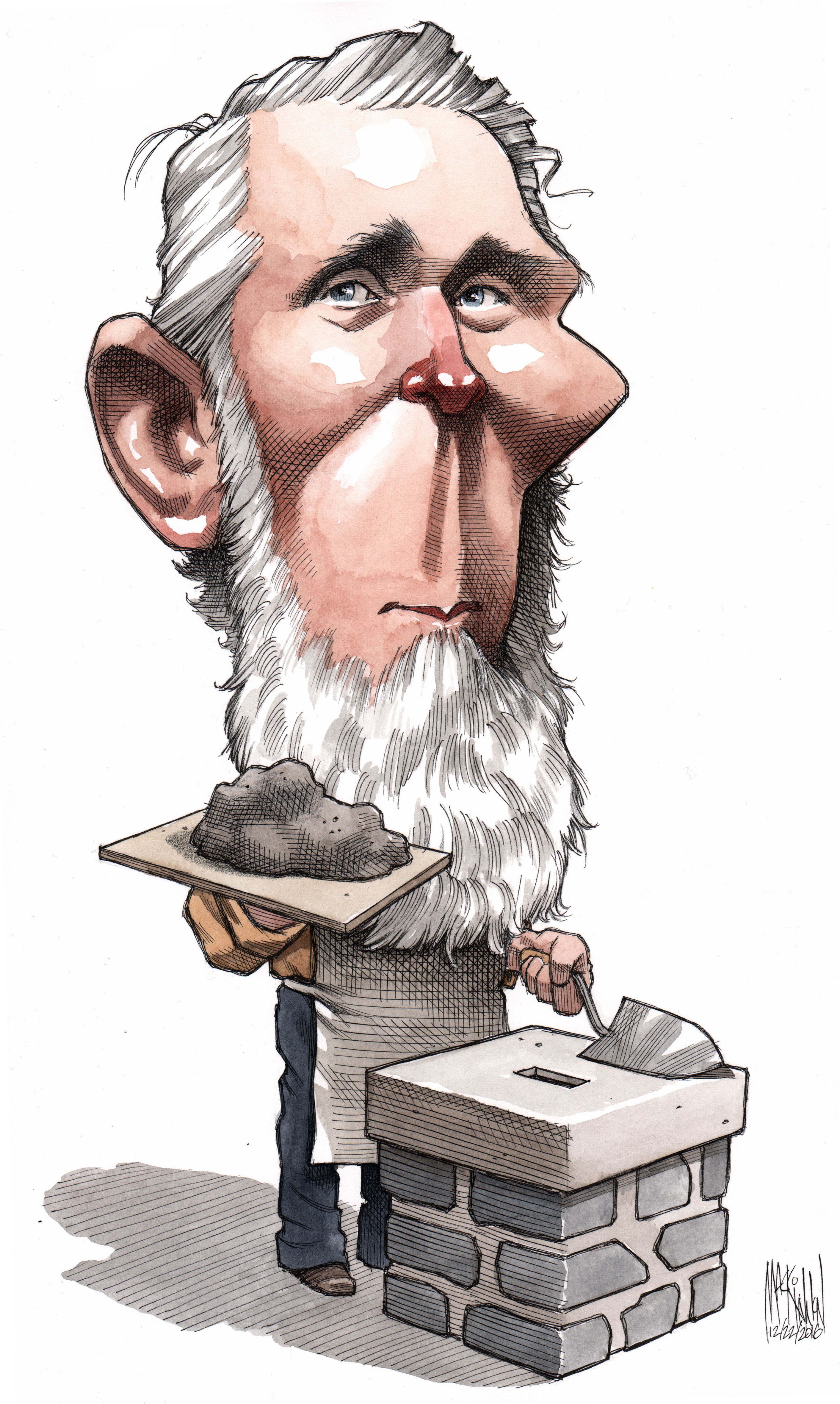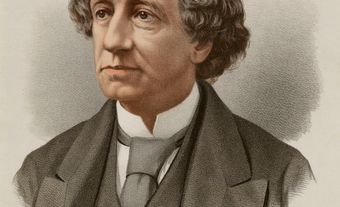
Early Life and Family
Alexander Mackenzie was born in Scotland on 28 January 1822, one of 10 sons born to Alexander Mackenzie and Mary Stewart Fleming. His father was a carpenter who experienced periods of both prosperity and unemployment. When his father died in 1836 at age 52, his older sons went to work to support the family, including the younger Alexander, who apprenticed as a stonemason.
In 1842, having heard stories about ample work for stonemasons in British North America, Mackenzie immigrated to what was then Canada West. He embarked on a career as a general building contractor, working on canals and public construction projects in Kingston, St. Catharines and Montréal. Mackenzie was soon joined by his brother Hope, and later their mother and seven surviving brothers (three had died in infancy). The whole family settled in Sarnia, where Mackenzie became a successful builder and developer.
In 1845, Mackenzie married Helen Neil, whose family had also immigrated from Scotland. They had three children, two of whom died at a young age. Helen herself died in 1852. The following year Mackenzie married Jane Sym, with whom he had no children.
Editor and Colonial Politician
Mackenzie became involved in colonial politics soon after arriving in Canada West. The egalitarian, anti-establishment Reform movement appealed to him, and he actively helped organize the election of Reformer George Brown to the legislative assembly of the Province of Canada in 1851. In the early 1850s, Mackenzie also became editor of a Reform newspaper, the Lambton Shield, and was himself elected to the assembly in 1861.
He backed the push for Confederation and was elected to the House of Commons, in 1867. Later, Mackenzie also sat in the Ontario legislature — serving for a time as treasurer in the provincial government of Edward Blake — until dual provincial-federal representation was abolished. He then sat in the Commons until his death.
Prime Minister
Although he did not actively seek the office, Mackenzie was well known and respected enough that in March 1873 he was named leader of the Liberal opposition. In November that year, he formed the first federal Liberal administration in Canada after Sir John A. Macdonald’s government was brought down by the Pacific Scandal. Almost immediately after forming a government, Mackenzie called an election. In January 1874, with the Pacific Scandal weighing down Conservative fortunes, the Liberals won a large majority.
A hard-working man of exceptional integrity but little imagination, Mackenzie served as his own minister of public works. His attempt to build a transcontinental railway on a self-financing basis met with some success but little public support. Many felt his diligence in his public works portfolio detracted from his leadership in the Commons.
Nevertheless, in his short tenure the Supreme Court of Canada and the Auditor General’s office were created, and the groundwork for Canada’s modern electoral system was laid. The 1874 Dominion Elections Act created laws for the secret ballot, and the removal of property-ownership qualifications for candidates seeking election to the House of Commons, among other reforms.
Macdonald’s Conservatives roared back to defeat Mackenzie’s Liberals in the 1878 elections, which were fought on the issue of the National Policy proposed by Macdonald. Mackenzie himself was re-elected in his constituency, but only narrowly.

Post-Government
Mackenzie remained leader of his party for another 19 months, until failing health and a threatened party revolt led him to step down in favour of Edward Blake. He would, however, hold onto a seat in the Commons until his death.
Loyal to his working-class sensibility, he refused several offers of a knighthood from Britain. During his life he wrote several books, including one in his retirement, The Life and Speeches of Hon. George Brown (1882). Earlier, Mackenzie had founded a fire insurance business, and after his term as prime minister he successfully expanded into life insurance, becoming the first president of the North American Life Assurance Company.
Mackenzie died in Toronto on 17 April 1892. He is buried in Sarnia, Ontario.

 Share on Facebook
Share on Facebook Share on X
Share on X Share by Email
Share by Email Share on Google Classroom
Share on Google Classroom



